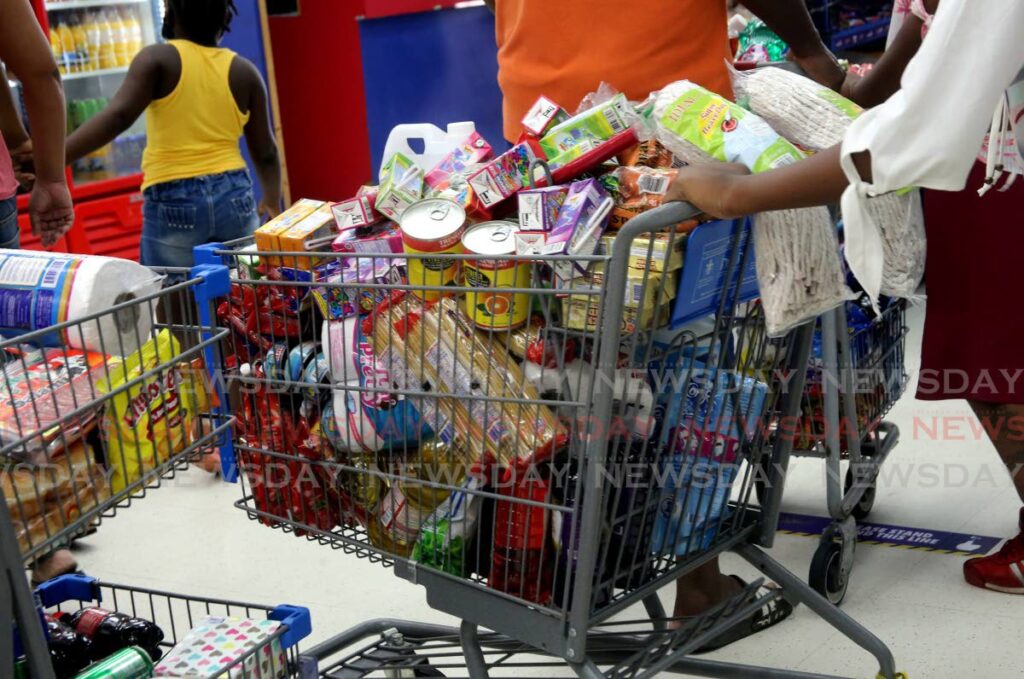Imbert: Pandemic impact, Ukraine-Russia war affect access to, cost of food

The Russia-Ukraine war has dramatically affected the ability of the world's most powerful economies to feed their citizens and fuel their nations, the Finance Minister, Colm Imbert, has said, adding that Trinidad and Tobago is under even greater pressure.
Imbert backed his statement with grains as an example.
He said the well-organised, very successful poultry industry in TT has had to compete for over a decade with low-quality, imported poultry parts.
"Now, with over millions of tonnes of grains stuck in warehouses and silos in Ukraine, our poultry industry grapples with severe supply-chain issues as the larger nations virtually commandeer vessels and global trading terminals."
He made the statement during his budget presentation in Parliament on Monday.
"Delays, lack of availability and ever-increasing shipping costs add millions to the normal shipping costs."
For those reasons, Imbert said importers, including state-owned importers, must pass increased costs on to the consumer.
"The domino effect can be devastating if the situation is prolonged. For a country which depends heavily on annual food imports, averaging more than $5 billion, the inability to import food can significantly affect food and nutrition security of the nation," Imbert said.
"Consequently, after broad-based consultations, we developed a roadmap to recovery to address the pandemic-induced economic decline."
He said the Government remained committed to the Caricom agenda, as well as to its roadmap for agriculture.
In his presentation, Imbert said he spoke of agriculture in the context of the impact of the covid19 pandemic and the renewed energy within Caricom to give life to long-discussed agriculture initiatives.
The Government will focus on boosting local production geared towards agro-processing to reduce reliance on highly processed imported food.
He added the Government also focuses on building a more effective agriculture sector based on sustainable value chains, using innovation, digitisation, and technology engagement of the private sector. It includes small farmers, youths and women.
Imbert considered the recent Agri Investment Forum and Expo II a "resounding success."
"Our expo saw over 30,000 participants from a broad cross-section of TT. It brought together for three days regional leaders, including business leaders and investors, farmers and future farmers, agro-processors and investors in agro-processing.
"Our Expo and Forum also brought together vendors and people in the business of food, as well as commercial entities which support the business of agriculture."
He praised Caricom, saying it is once again focused on the need for member states to have greater self-sufficiency in their food supply.
Imbert added, "Covid19 and the unexpected events in Ukraine have been wake-up calls, which have put pressure on both the access to food and the cost of food."
He recalled that in 2021, TT heeded the call of UN secretary general Antonio Guterres to host a national dialogue on food systems.
"We were very happy to have among our other facilitators in TT, Dr Shakuntala Haraksingh Thilsted, the TT-born global nutrition expert who won the prestigious 2021 World Food Prize for her groundbreaking research and developing holistic nutrition-sensitive approaches to aquaculture and food systems," Imbert said.
"Inevitably, those discussions and much of the discussions since late 2019 have been in the context of covid19 and the high food-import bill, lack of cohesive regional policies and legislation, turf wars among our manufacturers and insurmountable red tape."
He said another significant issue caused by the pandemic is how diets have changed "to our detriment."
"It is an uphill battle for all of us to reverse the trends. Healthcare costs are ballooning. Productivity is being impacted. Longevity is at risk. Our labour pool is at risk."

Comments
"Imbert: Pandemic impact, Ukraine-Russia war affect access to, cost of food"